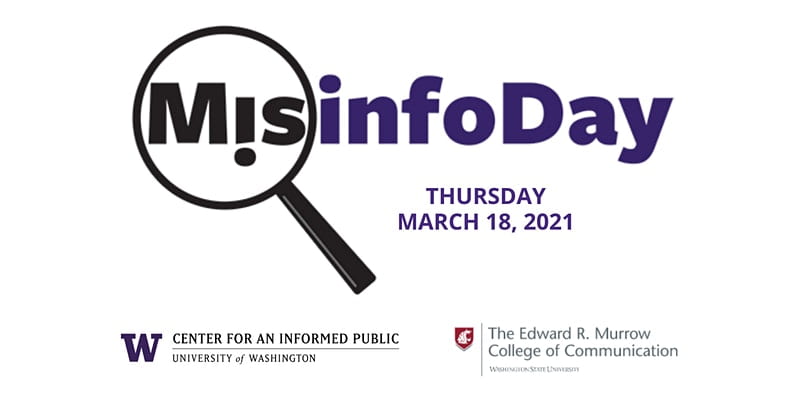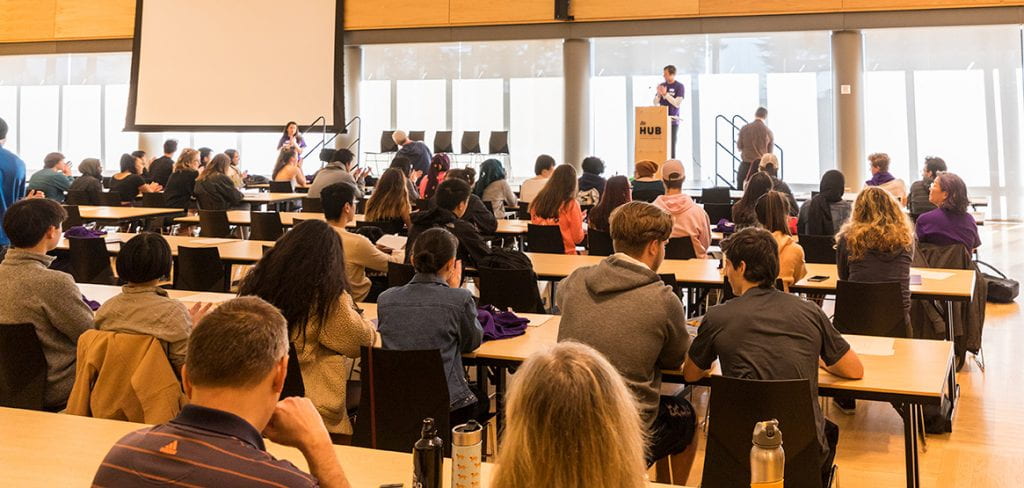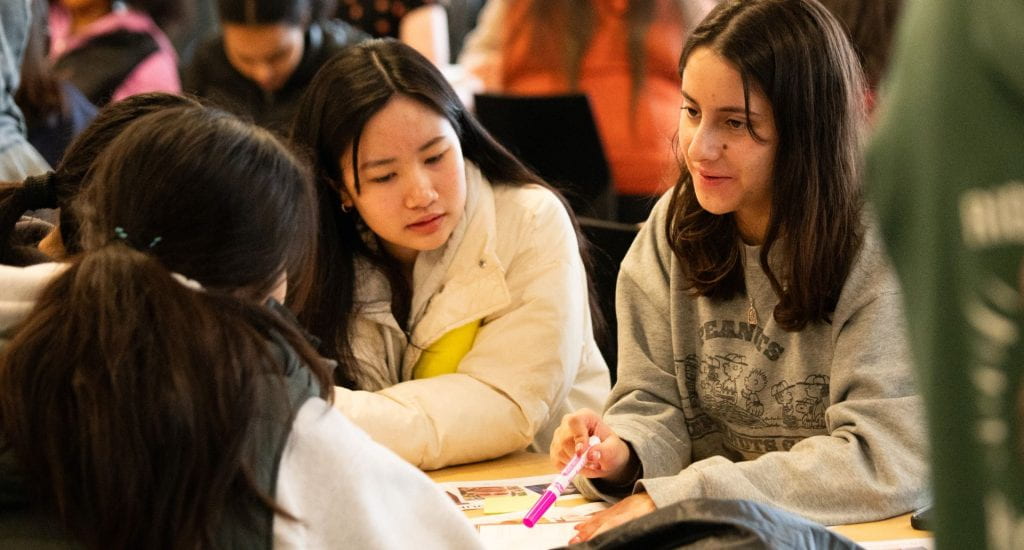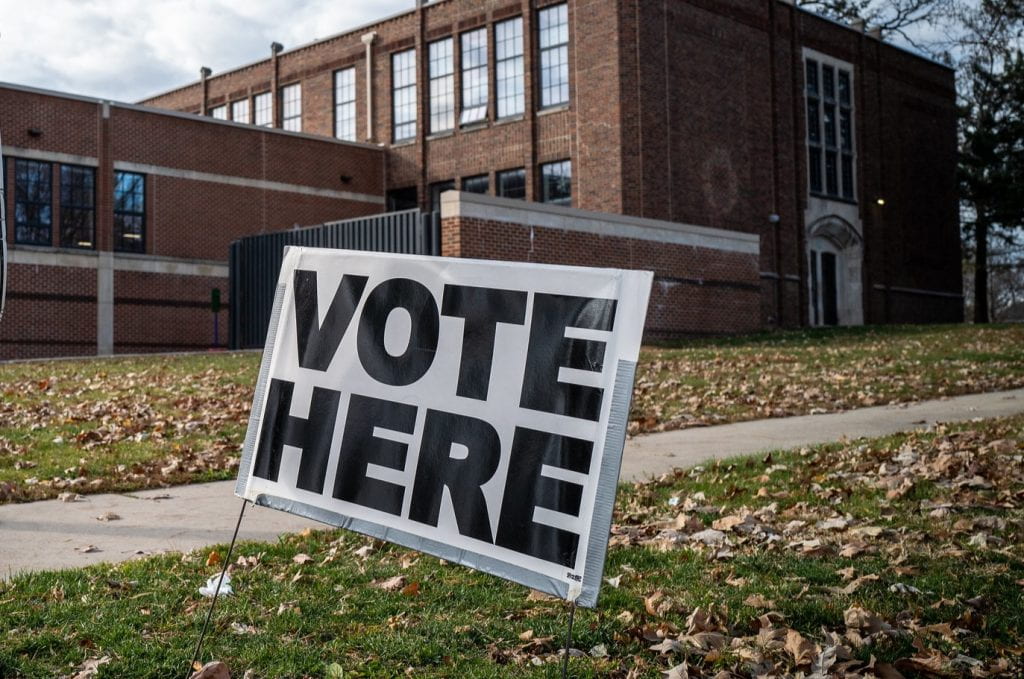Educators from across Washington state are leading the way in the development of misinformation awareness lessons and resources.
MisinfoDay, an educational event that started at the University of Washington Information School in 2019, has expanded its reach in 2021 with organizers at the UW Center for an Informed Public and Washington State University’s Edward R. Murrow College of Communication, which are co-presenting this year’s virtual workshops, anticipating participation from a few thousand students across Washington state and the United States.
During the event on March 18, middle and high school students will learn how to identify and combat mis- and disinformation through speaker presentations and interactive activities during morning and afternoon sessions.
Sessions will focus on spotting misinformation; fact-checking claims and sources; understanding the landscape of information disorder; and disinformation goals and tactics. Most sessions will be open to both middle and high school students.
Event sessions will be livestreamed on YouTube and recordings will be made available following the event for those who cannot watch live. A MisinfoDay resource toolkit will be shared with educators who registered.
Schools that are registered to participate in MisinfoDay represent urban and suburban districts in the Seattle, Spokane, Tacoma and Olympia areas, rural districts in central and eastern Washington, plus others in California, Connecticut, Georgia, Florida, Hawaii, Illinois, New Jersey, North Carolina, Ohio, Oregon, Tennessee and Wisconsin.
“We’re excited to see so much enthusiasm for connecting students with expert discussions on how misinformation targets us and what we can do about it,“ said Liz Crouse, UW iSchool MLIS alum and librarian at Seattle’s Nathan Hale High School, who helped jumpstart the first MisinfoDay in 2019 and has planned and coordinated this year’s event with UW’s Center for an Informed Public and WSU’s Murrow College.
The first MisinfoDay was hosted by the UW iSchool in March 2019, and drew approximately 200 high school students, teachers and librarians from across Washington state to UW’s Seattle campus.
Due to the COVID-19 pandemic, plans for an in-person MisinfoDay 2020 were canceled, but the CIP and WSU Murrow College co-hosted a misinformation awareness resources webinar for teachers and librarians, who represented 15 middle and high schools from across Washington state.
Inspired by the lessons of MisinfoDay, dozens of K-12 educators in Washington state have spent considerable time and energy in recent months to develop and test out misinformation awareness and “digital survival skills” teaching models to use in their classrooms. That group of educators, Teachers for an Informed Public, has been meeting virtually to share insights, ideas and their experiences.
In Seattle, teachers at Ballard High School have tested out MisinfoDay Jr and MisinfoNight programs not only with students, but also their parents. In late October, more than 150 students participated in presentations they created as part of a month-long media literacy unit.
At the center of the student work was the SIFT technique — “Stop, Investigate, Find better coverage and Trace claims” — developed by WSU Vancouver’s Michael Caulfield, a digital literacy expert who regularly collaborates with UW researchers at the Center for an Informed Public. Student presenters used tweets, news articles, and YouTube videos to demonstrate how the SIFT technique helps people determine fact from fiction.
“For the students who participated, they really saw it as the community service opportunity that it was: Educating their parents and community about good digital citizenship,” Ballard High School teacher Shawn Lee said last year in a July interview about testing out MisinfoDay Jr with his students.
For MisinfoDay 2021, Ballard High School’s experiences and lesson planning have been incorporated into a toolkit for educators, who can adapt it for their classroom use.
This year’s MisinfoDay facilitators include:
- Jevin West, CIP director and UW Information School associate professor, who is the co-creator of the UW course Calling Bull: Data Reasoning in a Digital World.
- Mike Caulfield, director of blended and networked learning at WSU Vancouver, who is the author of the Check, Please! fact-checking course and creator of the SIFT fact-checking method.
- Jacquelyn Mason, a senior investigative researcher at First Draft News, who focuses on mis- and disinformation in Black and Latinx communities.
- Jordan Foley, a WSU Murrow College of Communication assistant professor, who studies how political (mis)information flows across digital platforms over time and how journalists report on political conflict and controversy.
- Kate Starbird, CIP cofounder and UW Human Centered Design & Engineering associate professor, who studies the spread of rumors, misinformation and disinformation during crisis events.
- Kolina Koltai, a CIP postdoctoral fellow who studies trust assessment of information (and misinformation) with a focus on how social networking sites and digital communities interact with information behavior practices around health and science.
- Scott Leadingham, news manager for Northwest Public Broadcasting’s platforms across radio, TV and digital.
For more information about MisinfoDay, click here.
MORNING SESSIONS:
9:30-10:10 a.m. PDT
- Spotting Misinformation with Jevin West
Students will learn tips for identifying misinformation and discover why it can be tricky to recognize.
10:20-11:00 a.m. PDT
- Fact-Checking Claims and Sources with Mike Caulfield & Scott Leadingham
Students will practice investigating the reputation of claims and sources so they can make informed decisions about what to believe online.
11:10-11:50 a.m. PDT
Note: the following sessions will be offered concurrently
- Understanding the Landscape of Information Disorder (HS)* with Jacquelyn Mason
Empowering students with a knowledge, an understanding and the tools to build resilience against harmful, false, and misleading information. - Disinformation Goals & Tactics with Jordan Foley
Students will learn about how disinformation campaigns work and the motivations behind them.
*Sessions marked (HS) are aimed at a high school audience
AFTERNOON SESSIONS:
1:00-1:40 p.m. PDT
- Spotting Misinformation with Jevin West
Students will learn tips for identifying misinformation and discover why it can be tricky to recognize.
1:50-2:30 p.m. PDT
- Fact-Checking Claims and Sources with Mike Caulfield & Scott Leadingham
Students will practice investigating the reputation of claims and sources so they can make informed decisions about what to believe online.
2:40-3:20 p.m. PDT
Note: the following sessions will be offered concurrently
- Understanding the Landscape of Information Disorder (HS)* with Jacquelyn Mason
Empowering students with a knowledge, an understanding and the tools to build resilience against harmful, false, and misleading information. - Disinformation Goals & Tactics with Kate Starbird & Koko Koltai
Students will learn about how disinformation campaigns work and the motivations behind them.
*Sessions marked (HS) are aimed at a high school audience





